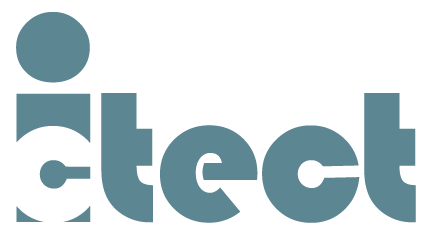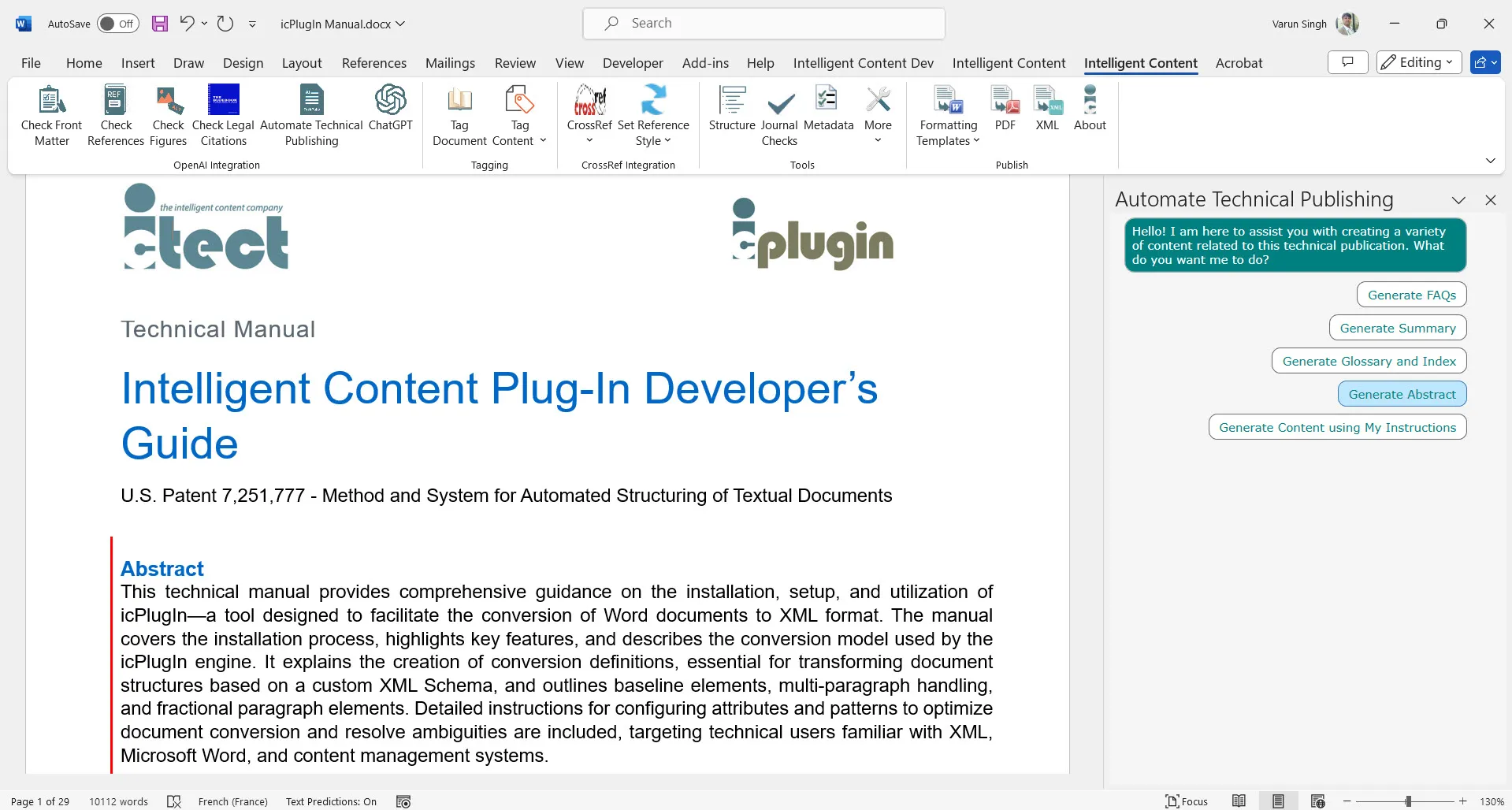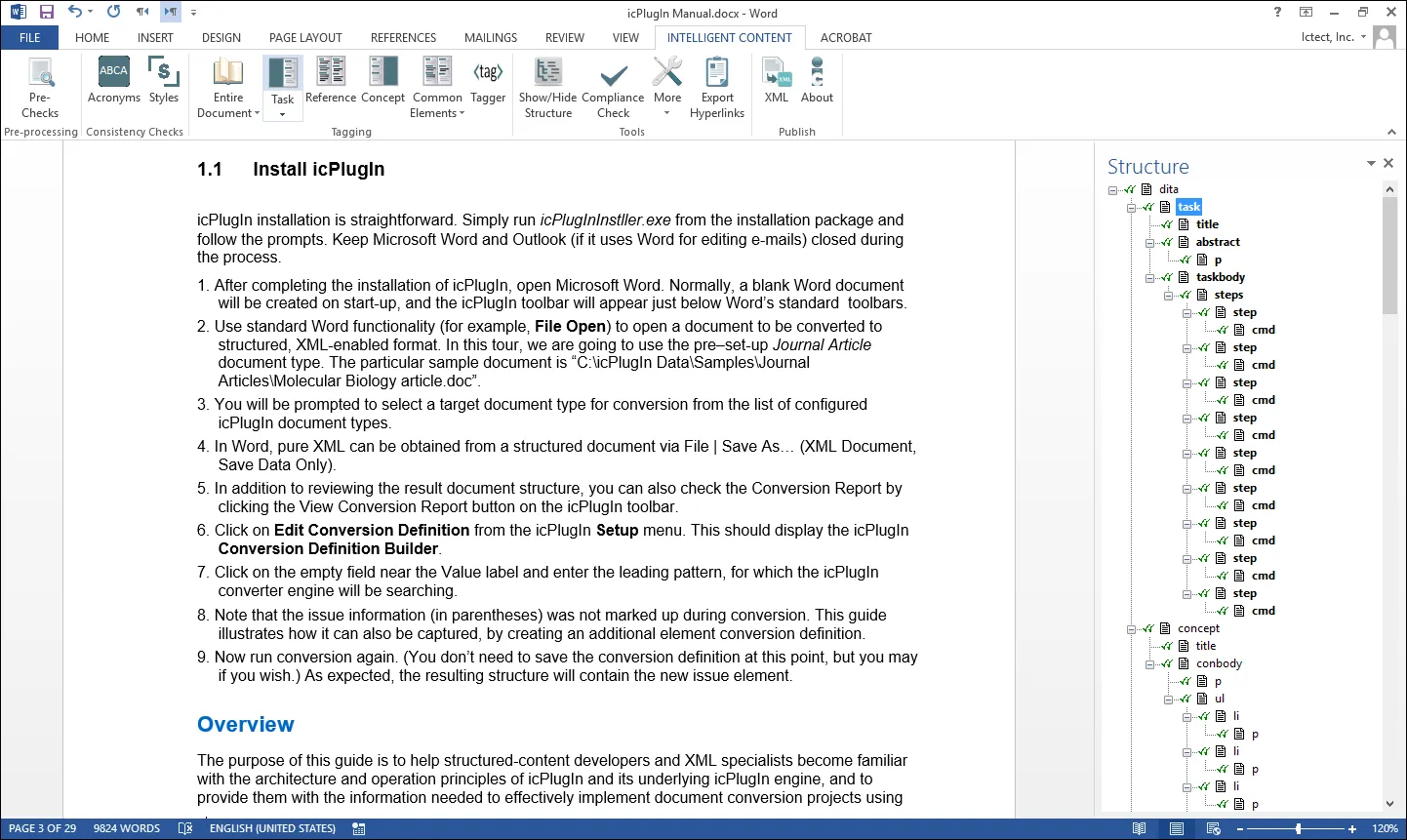
Return to News & Articles Page


by Pradeep Jain
Jul 02, 2024
Artificial Intelligence makes DITA easier
DITA has been an established standard in technical writing environments. However, one of the key issues in such environments is that non-technical writers such as subject matter experts and engineers are not able to effectively participate in the content lifecycle because of the complexity of coding with DITA XML. This could be a large number of employees or stakeholders in an organization. Microsoft Word is the predominant choice for this population.
Documents created in Microsoft Word need to be converted to DITA XML by technical specialists. This leads to disconnects between subject matter experts/authors and technical writers, which is frustrating for individuals involved in the process as well as costly and inefficient for organizations.
Now, with Artificial Intelligence, authors can develop their content in Microsoft Word with AI-powered templates. AI-powered templates are your traditional templates (.DOTX or .DOT files for most of us!) with new functionality added with Generative AI. For example, this includes the creation of new content based on your existing content and the vast knowledge of LLMs, such as FAQ, Sell-sheets, Summary documents, etc.
Depending upon the needs of the authors, such templates can be created with Microsoft Copilot or Ictect Intelligent Content Tools (icTools). Having authors write in Word with AI-powered templates not only reduces the time in content creation but also prepares the content for easy structuring and tagging into DITA XML.

Figure 1: Example of an AI-powered template for technical writing in Word
While authors do not need to see DITA XML, technical writers often do. With icTools, technical writers can easily work with DITA XML tags. They can exchange Word documents freely with authors without conversions or concerns for XML.

Figure 2: DITA XML in a Microsoft Word document for technical writers
This can lead to significant cost savings and efficiency improvement for technical writing departments. The larger the population, the more cost savings and efficiency improvement.
An additional benefit includes getting to a true single source of truth. In our experience, organizations maintain separate versions of documents in their Product Lifecycle Management (PLM) and Content Management Systems (CMS). With this approach, a single Microsoft Word document with XML becomes the source of truth, leading to frictionless collaboration between stakeholders.
Please contact us for a demonstration.